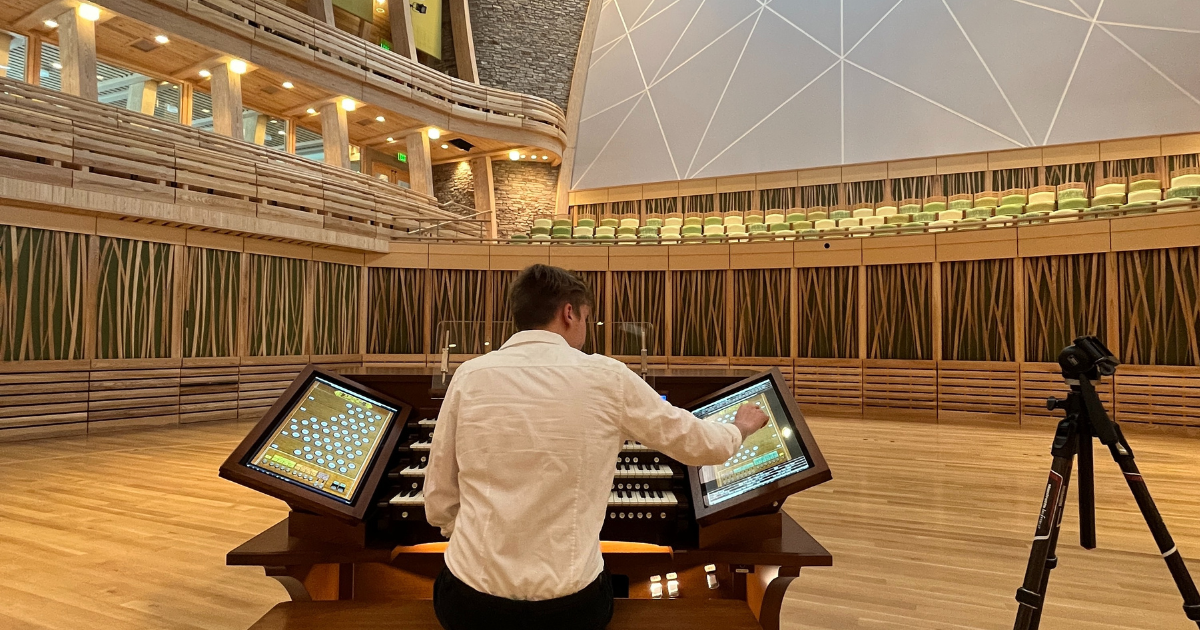Performance Tips for Organists: The Art of Organ Recitals

Hey I’m Paul Fey, As a professional organist with a passion for pipe organ music, I understand the challenges and triumphs of delivering a successful organ recital. In this blog post, I will offer practical advice for organists, from repertoire selection to stage confidence. Whether you're a seasoned performer or just starting out, these tips will help you enhance your performances and leave a lasting impression on your audience.

Repertoire Selection
Choosing the right pieces is important for a successful organ recital. Consider the following factors when selecting pieces for your performance:
1. Diversity
Aim for different kinds of pieces that showcase different styles, periods, and composers. This will keep your audience engaged and highlight your versatility as an organist.
2. Audience Appeal
Know your audience and select pieces that will resonate with them. Consider their musical preferences and choose pieces that will touch and inspire them.
3. Technical Difficulty
Assess your own abilities and choose pieces that challenge you without being too much for you. Gradually expand your technical skills by including pieces that push your boundaries.
4. Program Flow
Create a well-structured program that flows seamlessly from one piece to another. Consider the key relationships, tempos, and moods of the pieces to ensure a unified and engaging performance.
Preparation and Practice
Preparing for an organ recital requires diligent practice and thorough preparation. Here are some tips to help you make the most of your practice sessions:
1. Time Management
Set aside dedicated practice time each day to work on your pieces. Create a practice schedule that allows you to focus on specific pieces and techniques.
2. Sectional Practice
Break down each piece into smaller sections and practice them individually. Work on difficult passages, fingerings, and registrations to ensure a polished performance.
3. Memorization
Consider memorizing some or all of your pieces. Memorization allows for a deeper connection with the music and enhances your stage presence.
4. Rehearsal with Accompanist
if you're performing with someone who plays the piano or a group of singers, practice together to make sure you're all in sync. This will help you develop a strong musical collaboration.
Stage Confidence
Confidence is key when delivering a successful organ recital. Here are some tips to boost your stage presence and connect with your audience:
1. Visualize Success
Before stepping onto the stage, Imagine yourself playing perfectly before you go on stage. This positive visualization can help alleviate performance anxiety and boost your confidence.
2. Body Language
Pay attention to your body language while performing. Stand tall, maintain eye contact with the audience, and use expressive gestures to convey the emotions of the music.
3. Engage with the Audience
Tell your audience about the pieces you're playing and share some fun facts about the composers or the music itself. This will make your performance more interesting and engaging.
4. Overcome Mistakes
Everyone makes mistakes, even the best musicians. If you make a mistake, don't worry about it. Just keep playing and the audience will forget about it. The audience is there to enjoy the music, not to judge your every move.
Challenges and Triumphs
Delivering a successful organ recital comes with its fair share of challenges and triumphs. Here are a few common challenges organists face and how to overcome them:
1. Nerves and Anxiety
Many musicians get nervous before and during performances. You can calm your nerves by taking deep breaths and imagining yourself playing well.
2. Acoustics and Registrations
Every concert hall sounds different. To find the best sound for your organ, visit the concert hall early and try out different settings.
3. Page-turning
If you're performing a piece that requires page-turning, practice with someone to help you or find a way to do it smoothly without stopping the music..
4- Technical Difficulties
Technical glitches can happen during a performance. Get to know the instrument you'll be playing on and have a backup plan in case of any technical issues.
Conclusion
With these performance tips, you'll be well-equipped to deliver a successful organ recital. Remember to choose pieces that resonates with your audience, practice diligently, and exude confidence on stage. Embrace the challenges and celebrate the triumphs, knowing that each performance is an opportunity to share your love for pipe organ music with others.
To explore a wide collection of music sheets curated by me, visit my website. Enhance your repertoire and find the perfect pieces for your next organ recital. Keep practicing, keep performing, and keep sharing your passion for organ music with the world!



